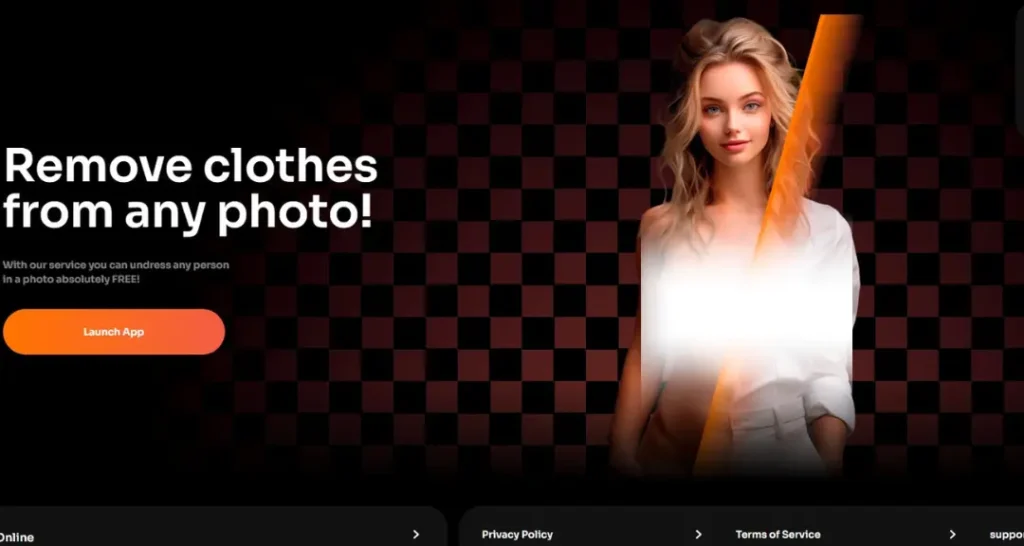Secret: Free Undress App - Get Yours Now!
Do you ever wonder about the intersection of technology and privacy, and how seemingly innocuous applications can blur the lines of consent and ethical boundaries? The concept of a "free undress app" raises serious concerns about privacy violations, potential misuse, and the exploitation of individuals' images, highlighting a complex issue that demands careful consideration and a critical eye.
The very phrase "free undress app" immediately conjures images of automated processes that promise to remove clothing from photographs, often without the explicit consent of the individuals depicted. This technology, driven by artificial intelligence and machine learning, is not new. However, as the sophistication of these algorithms increases, so does the potential for harm. The proliferation of such applications raises critical questions about data security, the right to privacy, and the ethical implications of readily available tools that can be used to generate non-consensual intimate imagery. The implications extend far beyond individual privacy, impacting legal frameworks, societal norms, and the mental well-being of those targeted.
The technology behind "free undress apps" relies on advanced image processing techniques. These techniques, often using deep learning models, are trained on vast datasets of images to identify and isolate clothing. The algorithms then attempt to remove these elements, replacing them with realistic representations of the underlying body. The quality of the results varies widely, but the rapid advancements in AI mean that the effectiveness of these applications is constantly improving. It's essential to understand the technical underpinnings to grasp the gravity of their potential impact. The speed at which these technologies are evolving, coupled with their accessibility, presents a significant challenge to privacy advocates and regulators alike.
The use of "free undress apps" has the potential to cause severe emotional distress. Victims can experience feelings of shame, humiliation, and violation. The non-consensual creation and distribution of these images can lead to cyberbullying, harassment, and even real-world threats. The potential for reputational damage is substantial, particularly for public figures or anyone whose online presence is crucial to their professional life. The psychological impact can be long-lasting, affecting individuals' relationships, self-esteem, and overall mental health. It is crucial to recognize the emotional toll this technology can take and to consider the ways victims could be affected by this.
The legal landscape surrounding "free undress apps" is complex and evolving. Existing laws, such as those related to revenge porn, may offer some recourse. However, the rapid pace of technological development often outstrips the ability of legal systems to adapt. The creation and distribution of non-consensual intimate images may violate laws related to privacy, defamation, and harassment, and often, such activities can open avenues for legal action. Enforcement is often difficult, as perpetrators may operate anonymously or from jurisdictions with weak privacy laws. The lack of clear and comprehensive legislation in many areas underscores the urgent need for updated legal frameworks to address the challenges posed by this technology. The need for stricter regulations is increasingly apparent.
Beyond the legal aspects, ethical considerations are paramount. The use of AI to generate intimate imagery without consent raises fundamental questions about human dignity and autonomy. The developers, distributors, and users of "free undress apps" all share some responsibility for their actions. The ethical implications extend to the broader implications for human interaction and trust. Creating an environment that normalizes this kind of technology can erode societal norms around privacy and consent. It's a point that cannot be overstressed: the moral implications are far-reaching and require careful consideration and a commitment to ethical conduct.
Protecting yourself from the misuse of "free undress apps" requires a multi-faceted approach. Be cautious about the images you share online, considering the potential for misuse. Review the privacy settings on your social media accounts. Report any instances of non-consensual intimate image distribution to the appropriate platforms and authorities. Educate yourself and others about the risks and the potential harm associated with this technology. Embrace a culture of respect for individual privacy and consent. Regularly search for your own images online using reverse image searches. This step is crucial for taking action and recognizing problems before they escalate.
The availability of "free undress apps" underscores the importance of critical thinking in the digital age. It's crucial to be aware of the technologies, their capabilities, and the potential risks they present. This necessitates a degree of digital literacy. Question the sources of information, verify the authenticity of images, and be wary of scams. Cultivate a skeptical approach to information and understand the ethical responsibilities of the digital world. By promoting awareness and a responsible approach to technology, it becomes possible to mitigate the potential harms associated with technologies that could potentially jeopardize privacy.
The fight against the misuse of "free undress apps" requires the concerted effort of individuals, technology companies, and lawmakers. Tech companies must develop and implement effective detection and removal systems. Lawmakers must enact legislation that protects privacy and punishes those who engage in malicious activities. Individuals should practice safe online behavior. Education and awareness are critical tools in the fight against the harmful effects of this technology. Everyone must be involved for it to be effective.
The conversation around "free undress apps" is a vital one. It is necessary to consider the technological advancements and the possible issues they could provoke. It involves acknowledging the intricate relationship between technology and ethics. It calls for a collective commitment to safeguarding privacy, promoting digital responsibility, and defending the dignity of individuals in an increasingly digital world. This dialogue is essential to addressing the challenges and realizing the potential of technological progress.
| Feature | Details |
|---|---|
| Technology Used | Artificial Intelligence (AI), Deep Learning, Machine Learning, Image Processing, Neural Networks |
| Functionality | Automated removal of clothing from images, Generating nude or semi-nude depictions. |
| Data Sources | Training data, image datasets. |
| Target Users | Individuals whose images are obtained through different channels. |
| Risks and Impacts | Privacy violations, cyberbullying, emotional distress, reputational damage, legal consequences. |
| Legal Frameworks | Revenge porn laws, privacy laws, defamation laws, harassment laws. |
| Ethical Concerns | Consent, human dignity, autonomy, responsibility of developers, distributors, and users. |
| Mitigation Strategies | Secure online behavior, cautious image-sharing, reporting abuse, digital literacy. |
| Industry Response | Detection and removal systems, content moderation, user education, and reporting systems |
| Reference Website | Electronic Frontier Foundation (EFF) - A leading nonprofit organization defending civil liberties in the digital world. |


